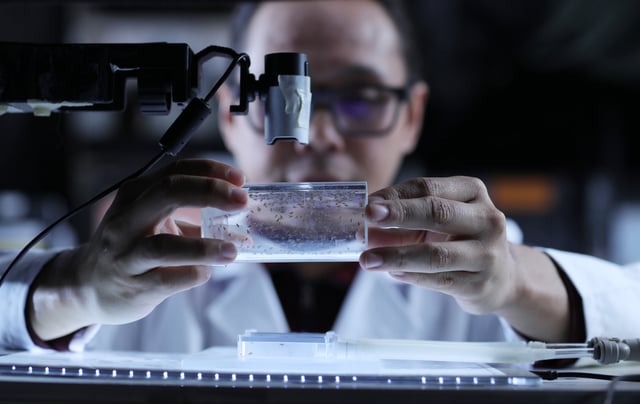Overview
- The study, published in iScience on July 24, showed that fruit flies given caffeine at night were less able to suppress movement in response to strong airflow, demonstrating increased impulsivity.
- Daytime caffeine consumption had no effect on flies’ inhibitory control, underscoring a time-dependent impact of caffeine.
- Female flies exhibited substantially greater caffeine-induced reckless flying than males despite similar body caffeine levels.
- Researchers noted that the absence of human-like hormones in Drosophila points to genetic or physiological factors behind the heightened female response.
- The UTEP team plans to pinpoint the specific genetic pathways involved and warns that night-shift workers, especially women, may face elevated risks from late-night caffeine intake.


